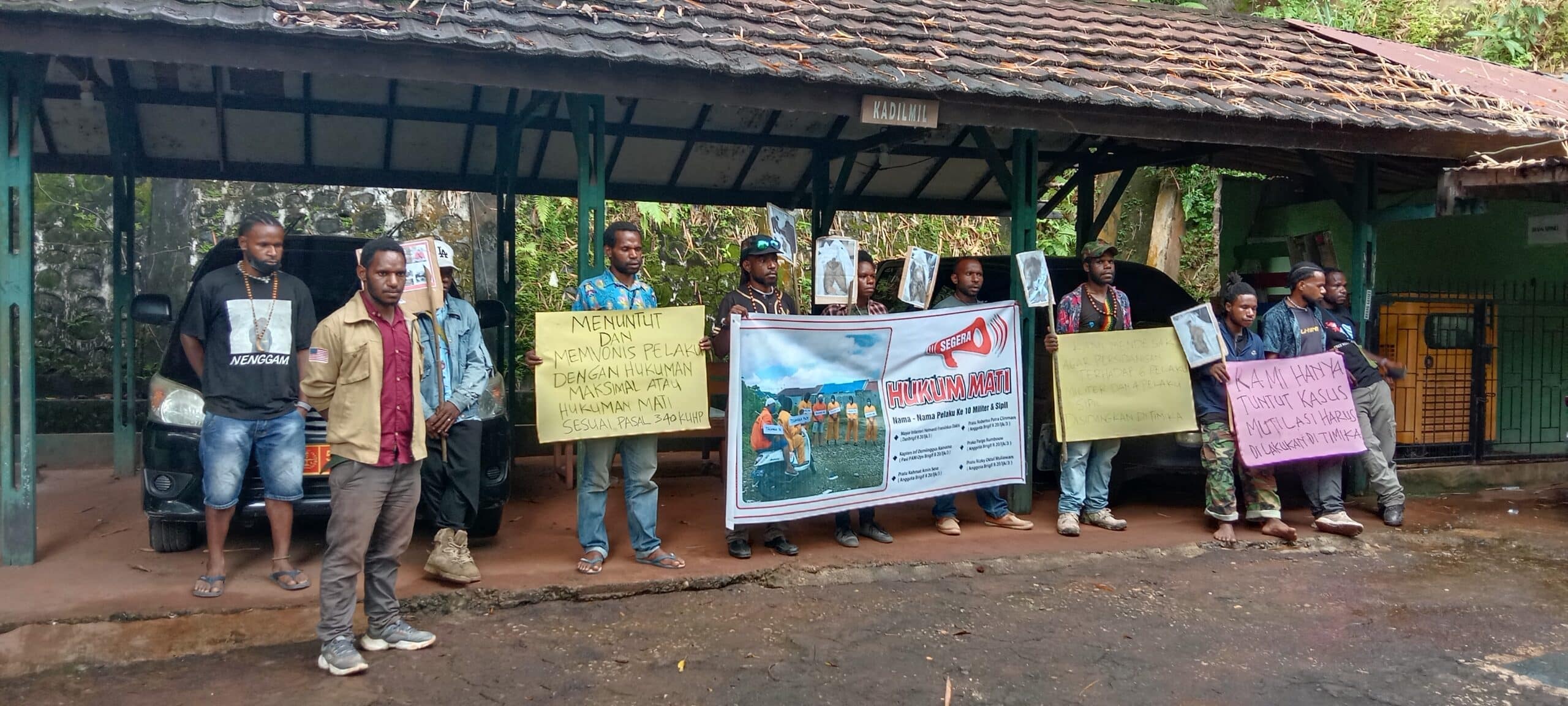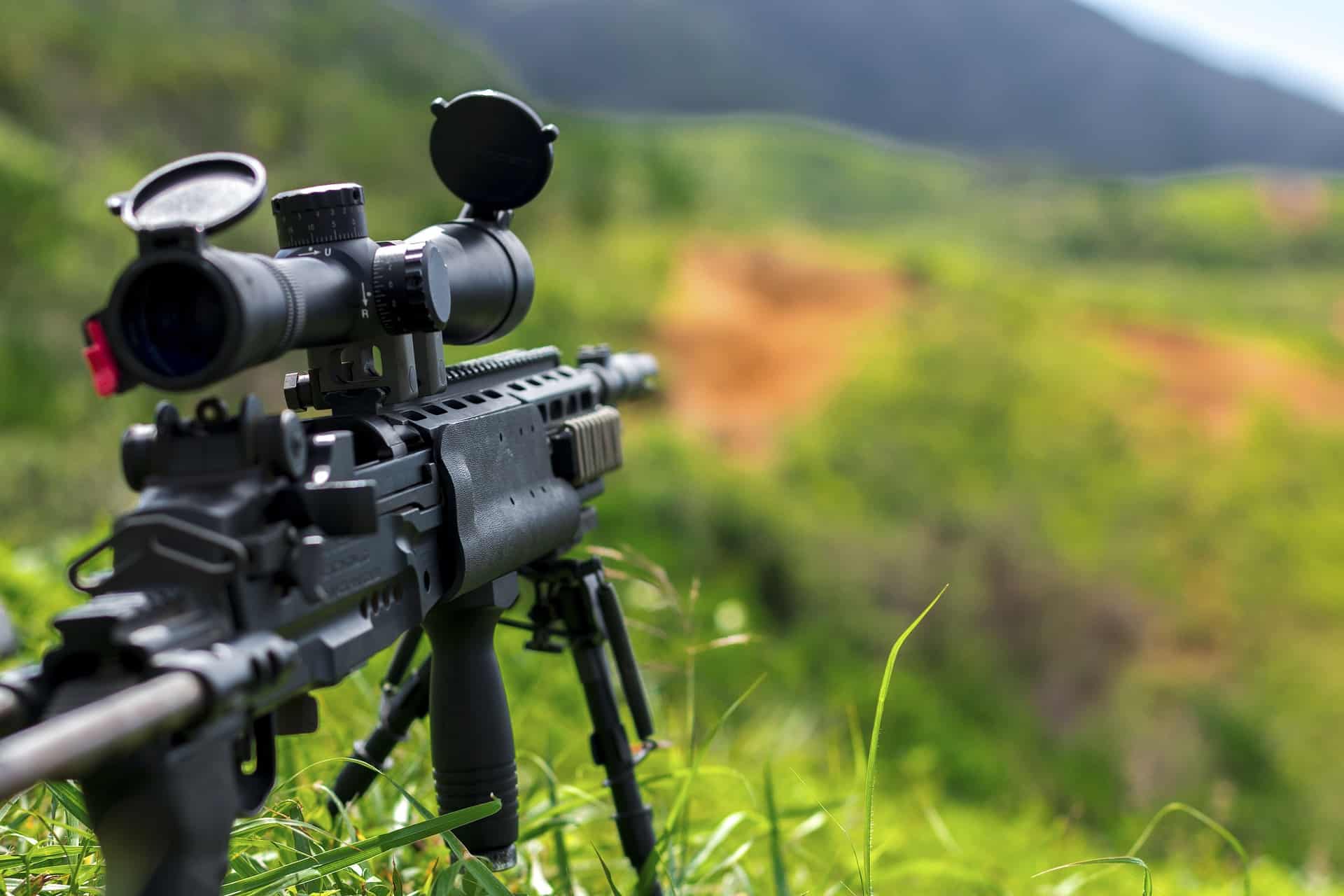
Jayapura, Jubi – Amidst intimidation, illegal arrests, disappearances, torture and killings in Tanah Papua resulting from tensions between the Indonesian authorities and the Papuan pro-liberation groups, churches seek justice, peace, dignity and security for the Papuans.
The conflict in Tanah Papua (West Papua) has cost the lives of thousands since the late 1960s. A former Dutch colony placed under the United Nations administration in 1962, the region was unilaterally annexed by Indonesia and since then has experienced pro-independence insurgency. In 1969 Tanah Papua was formally incorporated into Indonesia, becoming Irian Jaya province.
Jan Bastian Rumbrar, ecumenical relations officer at the Evangelical Christian Church in Tanah Papua (GKITP) – a member church of the World Council of Churches (WCC) said, “The GKITP formed in 1958 following over 101 years of mission work laid down by German and Dutch missionaries, was tested with political dispute between Indonesia and the Dutch over the territory called Dutch New Guinea.”
“The human as well as spiritual development of communities at that time met with despair as preparation for an independent church was not followed by political independence for the Papuans who are the indigenous inhabitants of the territory,” he adds.
On the contrary, Rumbrar says, oppression followed the integration of the territory into Indonesia on 1 May 1963 under the United States brokered New York Agreement.
While human rights violations have continued in the region, Rumbrar explains that the churches have played a strong role of being the “salt and light” (Matthew 5: 13-16) in a true biblical sense.
While human rights violations have continued in the region, Rumbrar explains that both Catholic and Protestant churches in Tanah Papua have voiced their cries, but little has been heard.
Concern over human right violations
Dr Fransina Yoteni, member of the WCC Central Committee from Tanah Papua and Rev. Alberth Yoku, chairperson of the Indonesian Christian Church (GKI-TP) underlined how difficult the situation in Tanah Papua remains. Human rights violations have been documented by the international organizations. Substantial actions are yet to be taken to end the violence against Papuans, they say.
These church leaders tell how economic impoverishment, inadequate health care and education systems and exploitation of resources have caused social and environmental degradation. They stress that development in Tanah Papua is only benefitting the political elite instead of common people.
Archbishop Desmond Tutu, said, “The people of West Papua have been denied their basic human rights, including their right to self-determination. Their cry for justice and freedom has fallen largely on deaf ears.”
The WCC general secretary Rev. Dr Olav Fykse Tveit, who visited Tanah Papua in 2012, said upon his return, “We support the struggle for human rights of the people of Papua. We urge an end to the on-going violence and impunity. We support the call for social and economic justice through serious dialogue and a concrete political process.”
The Pacific Conference of Churches (PCC) has played a key role in demanding justice for the Papuan people. Supporting the struggle for justice and liberation from all forms of oppression, including from colonial legacies in the Pacific, have been longstanding mandates of the PCC. The PCC now strives to be more prophetic in advocating for the Papuan people in these very struggles.
“In the past few years, the PCC has sought to engage church leaders, fellow civil society, faith-based groups, governments and political leaders in the region not merely to raise awareness about, but more importantly to encourage concerted action against the oppression under Indonesian administration,” said François Pihaatae, PCC general secretary and member of the WCC’s Commission of the Churches on International Affairs.
“The PCC has renewed its commitment to accompany the Papuans inside Tanah Papua in their struggle against a daily oppressive reality and to contribute to breaking through their isolation,” Pihaatae added.
Yet advocacy efforts by the churches can be a challenge. Jan Rumbrar shares that any move by the churches can be considered either pro-independence or anti-government, that can lead to stigma that can result into accusation of treason and therefore imprisonment.
Rev. Benny Giay of the Evangelical Papua Church describes situation of churches in Tanah Papua like “sweet potatoes growing between two stones” – on the one hand, the desire of Papuan people for self-determination, and on the other hand, the determination of the Indonesian government to retain control.
Investment in dialogue and peace process
In 2011, local church leaders met with Indonesia’s then President Susilo Bambang Yudhoyono to promote a peaceful solution for Tanah Papua. The church leaders handed over a letter to the president asking to have a dialogue with the Papun. They also asked Yudhoyono for stopping the Matoa Operation in Paniai, Papua, which caused 14 deaths and burning of villages in 2011. At the time Yudhoyono welcomed such a dialogue, yet shared his concerns regarding the territorial integrity of Indonesia.
To aid the peace process, the Communion of Churches in Indonesia (PGI) has also establised a Papua Desk in Jakarta which undertakes research and advocacy on issues concerning Tanah Papua.
To support peace initiatives in Tanah Papua, the WCC Executive Committee issued a statement in 2012. The document urges the Indonesian authorities to take necessary steps to “release the political prisoners, to lift the ban on peaceful assembly of Papuans and to demilitarize Tanah Papua” and “enter into dialogue with indigenous Papuan people and to take adequate measures to protect their rights”.
WCC general secretary calls for justice and peace in Tanah Papua (WCC news release of 26 June 2012)
Consultation urges protection of human rights in Papua (WCC news release of 27 September 2013)
Read full text of the WCC Executive Committee statement
Indonesian president’s meeting with Papuan church leaders (Blog by Andreas Harsono)
WCC member churches in Indonesia
http://www.oikoumene.org/en/press-centre/news/churches-in-tanah-papua-seek-justice-peace-and-stability















